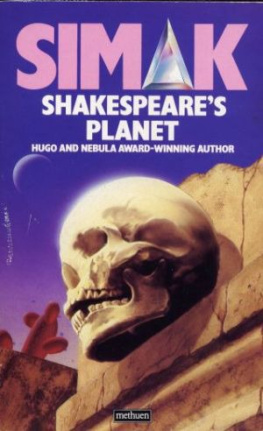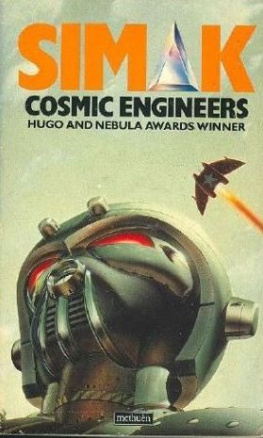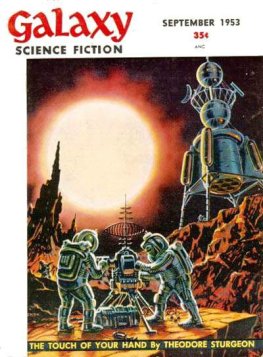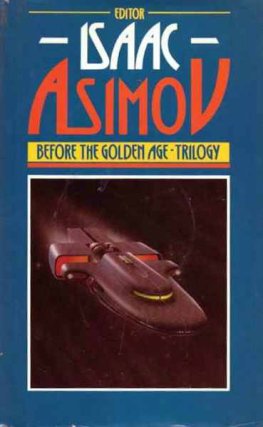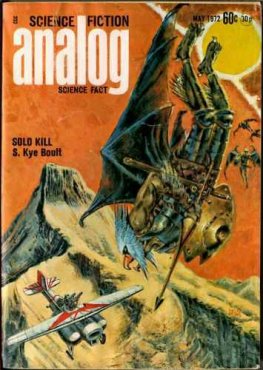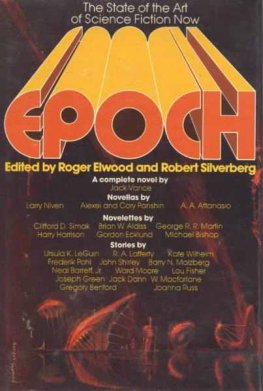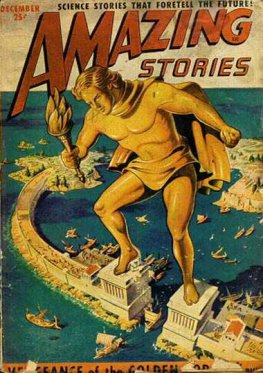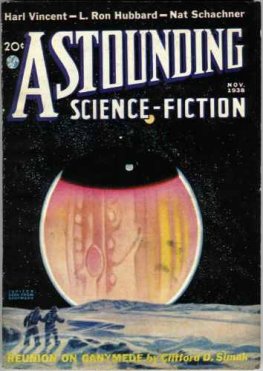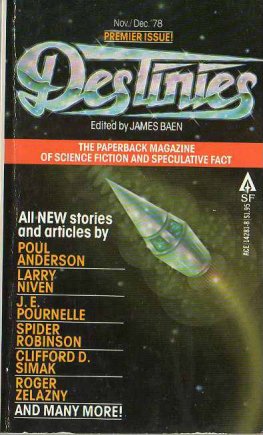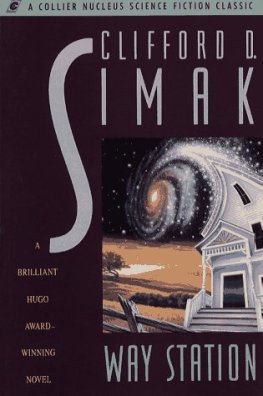Clifford D. Simak
Shakespeares Planet
THERE were three of them, although sometimes there was only one of them. When that came about, less often than it should, the one was not aware there ever had been three, for the one was a strange melding of their personalities, When they became as one, the transformation was something more than a simple addition of the three, as if by this pooling of themselves there had been added a new dimension which made the sum of them greater than the whole. It was only when the three were one, a one unconscious of the three, that the melding of three brains and of three personalities approached the purpose of their being.
They were the Ship and the Ship was them. To become the Ship or to attempt to become the Ship, they had sacrificed their bodies and, perhaps, a great deal of their humanity. Sacrificed, perhaps their souls as well, although that was something no one, least of all themselves, ever agreed on. This disagreement, it should be noted, stood quite apart from any belief or disbelief that they might have souls.
They were in space, as was the Ship, and this was understandable since they were the Ship.
Naked to the loneliness and emptiness of space as the Ship was naked. Naked at once to the concept of space, which is not understood in its entirety, and to the concept of time, which is, in the final accounting, less understandable than space. And naked, too, they finally found, to those attributes of space and time, infinity and eternity; two concepts that stand beyond the capability of any intelligence.
As the centuries went on, they were collectively convinced they would become, in all truth, the Ship and nothing but the Ship, sloughing off all they had ever been before. But they had not reached that point yet. Humanity still persisted; memory still hung on. They still, at times, felt the old identities, perhaps with some of the sharpness dulled, with the pride less bright; because of the nagging doubt that they had been quite as noble in their sacrifices as they, at one time, had been able to convince themselves. For it finally came to them, although not to all of them at once, but one by one, that they had been guilty of semantic shuffling, using the term sacrifice to becloud and camouflage their basic selfishness. One by one, it came to them in those tiny intervals when they were truly honest with them selves, that the nagging doubts which hounded them might be more important than the pride.
At other times, old triumphs and regrets came surging out of time long gone and alone, not sharing with the others, each fondled the old triumphs and regrets, obtaining from them a satisfaction they would not admit, even to themselves. On occasion they stood aside from one another and talked to one another. This was a most shameful thing and they knew that it was shameful, delaying the time when they could finally sink their own identities into the one identity that came about through the consolidation of their three identities. In their more honest moments they realized that in doing this they were instinctively shying away from that final loss of personal identity which is the one outstanding terror all sentient life associates with death.
Usually, however, and increasingly as time went on, they were the Ship, and the Ship alone, and in this there was a satisfaction and a pride, and at times a certain holiness. The holiness was a quality that could not be defined In words or delineated in a thought, for it was outside and beyond any sensation or accomplishment that the creature known as man could have conjured up even in the utmost exercise of his not inconsiderable imagination, It was, in a way, a sense of minor brotherhood with both time and space, the sense of being one, strangely identified, with the spacetime concept, that hypothetical condition which is the basic pattern of the universe. Under this condition they were kin to the stars and neighbor of the galaxies, while the emptiness and loneliness, although never losing frightfulness, became familiar ground.
In the best of times, when they most nearly came to their final purpose, the Ship faded from their consciousness and they alone, the consolidated one of them alone, moved across and through and over the loneliness and emptiness, no longer naked, but a native of the universe that was now their country.
SHAKESPEARE said to Carnivore, The time is nearly come. Life fades rapidly; I can feel it go. You must be ready. Your fangs must pierce the flesh in that small moment before death. You must not kill me, but eat me even as I die. And you remember, surely, all the rest of it. You do not forget all that 1 have told you. You must be the surrogate of my own people since none of them is here. As best friend, as only friend, you must not shame me as I depart from life.
Carnivore crouched and shivered. It is not something that I asked, he said. It is not something that I would elect to do. It is not my way to kill the old or dying. My prey must be always full of life and strength. But as one life to another, as one intelligence to another, I cannot refuse you. You say it is a holy thing, that I perform a priestly office and this is something from which one must never shrink, although every instinct in me cries out against the eating of a friend.
I hope, said Shakespeare, that my flesh be not too tough nor the flavor strong. I hope the ingestion of it does not make you gag.
I shall not gag, promised Carnivore. I shall be strong against it. I shall perform most truly. I shall do everything you ask. I shall follow all instructions. You may die in peace and dignity, knowing that your last and truest friend will carry out the offices of death. Although you will permit me the observation that this is the strangest and the most obnoxious ceremony I have ever heard of in a long and misspent life.
Shakespeare chuckled weakly. I will allow you that, he said.
CARTER HORTON came alive. He was, it seemed, at the bottom of a well. The well was filled with fuzzy darkness and, in sudden fright and anger, he tried to free himself of the fuzz and darkness and climb out of the well. But the darkness wrapped itself about him, and the fuzziness made it difficult to move.
After a time he lay quiet. His mind clicked hesitantly as he sought to know where he was and how he might have gotten there, but there was nothing to give him any answers. He had. no memories at all. Lying quietly, he was surprised to find that he was comfortable and warm, as if he had been always there, comfortable and warm, and only aware now of the comfort and the warmth.
But through the comfort and the warmth, he felt a frantic urgency and wondered why. It was quite enough, he told himself, to continue as he was, but something in him shouted that it was not enough. He tried again to climb out of the well, to shake off the fuzziness and darkness, and failing, fell back exhausted.
Too weak, he told himself, and why should he be weak?
He tried to shout to attract attention, but his voice would not work. Suddenly he was glad it didnt, for until he was stronger, he told himself, it might be unwise to attract attention. For he did not know where he was or what or who might be lurking near, nor with what intent.
He settled back into the darkness and the fuzziness, confident that it would conceal him from whatever might be there, and was a bit amused to find he felt a slow, seeping anger at being forced thus to huddle against attention.
Slowly the fuzziness and the darkness went away, and he was surprised to find that he was not in any well. Rather, he seemed to be in a small space that he now could see.
Metal walls went up on either side of him and curved, only a foot or so above his head, to form a ceiling. Funny-looking gadgets were retracted into slots in the ceiling just above his head. At the sight of them, memory began seeping back, and carried by that memory was a sense of cold, Thinking about it, he could not recall an actual coldness, although the sense of cold was there. As the memory of the cold reached out to touch him, he felt a surge of apprehension.

